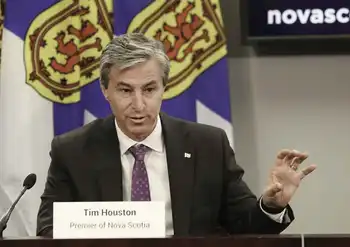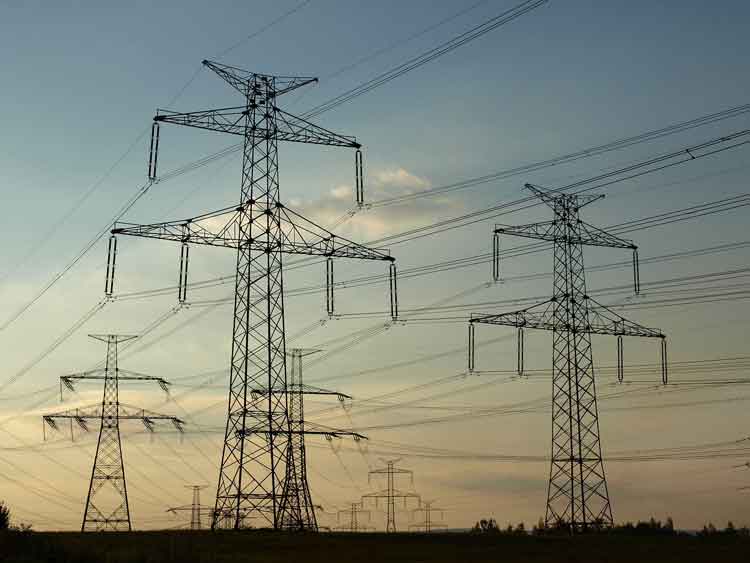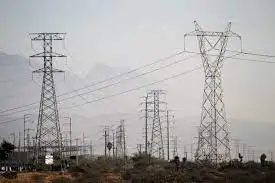Canada sticking to greenhouse-gas targets: Prentice
By Toronto Star
NFPA 70b Training - Electrical Maintenance
Our customized live online or in‑person group training can be delivered to your staff at your location.

- Live Online
- 12 hours Instructor-led
- Group Training Available
Environment Minister Jim Prentice says Canada's targets to reduce greenhouse gases aren't up for negotiation when countries meet in the Danish capital.
"We have been through a lot of negotiation to this point, and we've put on the table targets that we know we can live with and are achievable," Prentice told The Canadian Press.
"We've not put targets on the table that have some room built into them to increase them.
"We were very clear at the outset that to avoid a repetition of Kyoto, we would go into this process with real targets, practical targets that we know the country can achieve."
The Harper government's take-it-or-leave-it approach to Canada's targets comes as countries make their final preparations for what's expected to be a difficult 12 days of United Nations climate talks.
The conference has been portrayed by some as the world's last chance to strike a deal to avert the catastrophic effects of a warming planet.
But expectations have fallen recently because rich and developing countries still disagree on some key points, and there's not enough time left before the summit to break the deadlock.
Now nearly all participants believe the most that will come out of Copenhagen is a blueprint that sets out a timeline and a rough sketch of an eventual climate deal.
Canada's top climate-change envoy, Michael Martin, will lead a 47-member delegation of federal officials, opposition MPs and provincial representatives that includes several premiers and regional environment ministers.
Prime Minister Stephen Harper will join Canada's delegation during the final days of the summit for a meeting of world leaders. U.S. President Barack Obama has re-jigged his schedule and will now join other leaders in Copenhagen.
Getting the world's biggest polluters – including China and the United States – to sign on to a new agreement is seen as a top priority.
But countries also want to avoid being cast as climate laggards.
"This is like the Super Bowl of climate-change conferences," said John Drexhage, Ottawa-based climate director at the International Institute for Sustainable Development.
"Because the stage is so much higher, that's why Canada's profile can come out even worse, or there's the potential for that. Everything will be magnified."
Canada attracts its share of unwanted attention at climate talks, even though our emissions make up just a fraction of all the world's greenhouse gases.
Alberta's oil sands – the focus of a National Geographic spread earlier this year – and the federal Conservatives' eschewing of commitments made by the previous Liberal government under the Kyoto Protocol, have made Canada a whipping boy on the environment.
British writer George Monbiot wrote a scathing column in The Guardian, blasting Canada as a "corrupt petro-state" whose government behaves with "the sophistication of a chimpanzee's tea party." The column carried the headline, "Canada's image lies in tatters. It is now to climate what Japan is to whaling."
The British paper carried Prentice's rebuttal a few days later. But it is precisely this, the image of Canada as environmental bad seed, that the Harper government is trying to avoid.
"Although the government might differ, they're usually put in the back of the bus of the G8," Drexhage said.
"Traditionally, that spot had been taken up by the likes of the Bush administration and Russia, but both have sort of stepped up from there in the eyes of most."
Several provinces and some European nations have pressured Canada to adopt more ambitious greenhouse-gas goals ahead of the Copenhagen summit.
The Conservative government aims to lower Canada's greenhouse gases 20 per cent from 2006 levels by 2020. But the Tories have yet to produce a detailed plan showing how they'll reach that goal.
Ontario, Quebec and British Columbia have all unveiled their own targets that use 1990 – when emissions were lower – as their baseline year. The Europeans also use the 1990 baseline, and there has been pressure for Canada to follow suit.
But Prentice says Canada can't make the kind of deep cuts that some quarters are pushing for.
"One of the realities I think that we face in all this is we are not a small, European country geographically," he said.
"We are an immense, diverse half of a continent. It's very hard to take the approach that some of the European countries do. I mean, we set aside... a piece of land the size of Denmark last year alone as a carbon sink.
"So, our country is enormous with very different circumstances."
So Canada is looking south for guidance. Obama's arrival in the White House saw Canada endeavour to harness its environmental policies to those of the United States, our largest trading partner.
The United States has articulated a similar target to Canada, albeit with a 2005 baseline year for cuts.
Prentice said Canada will likely adopt 2005 as its baseline year as it synchronizes with the U.S. on the environment.











